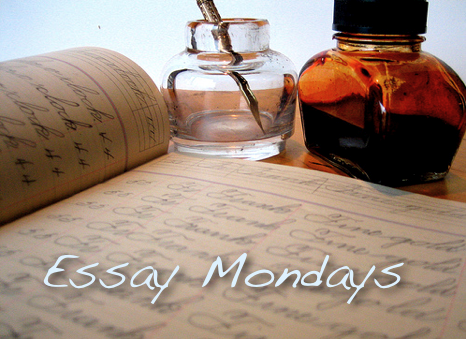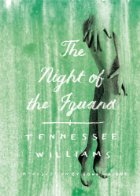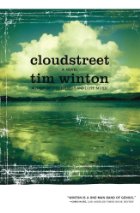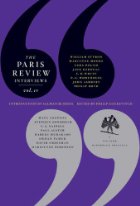
I know it's not fair, that it goes against every rule of responsible writing on books and literature, to evaluate a novel based on the author's other works. How much less fair to evaluate a first novel on the merits of an author's subsequent works, when one has chosen to read them out of order? Totally, completely unfair. Nevertheless, I can't honestly talk about my reaction to Marilynne Robinson's Housekeeping without getting this out of my system: gorgeous, limpidly written it may be, but it's no Gilead.
Nor is it supposed to be, after all. Whereas Robinson's second novel, published twenty-four years after her first, is an intimate, perfectly-pitched character study of a man at the end of his life, looking back with mellow pain and pleasure at the family legacy he is leaving to his young son, her earlier work features a pair of sisters who were given no such guiding light by their parents. What touched me so deeply about Gilead, what puts it on my top-twenty list of all time, is the tangible, rooted reality of the Reverend John Ames. But Housekeeping is not about age, and it's not about the tangible. Instead it's about the transient, and loss, and the brittle no-man's-land of an adolescence saturated in death. Although both novels are written in the first person, the voice of Housekeeping's protagonist Ruthie is distant, almost cold, functioning always at a remove from the reader, which is a stark contrast from Ames's intimate warmth. Ruthie's distance makes sense within the novel: abandoned by their suicidal mother at a young age, she and her sister Lucille are raised by a series of relatives, ending up finally in an uneasy guardian/ward relationship with their formerly-transient aunt Sylvie, who they expect, both because of their own history and her character, to abandon them at any moment. As the three women drift forward in time, Lucille makes a conscious decision to leave Sylvie and rejoin "normal" society, whereas Ruthie is more torn.
If I were to pick one adjective to describe this book, it might be "haunted." All three main characters seem beset: sometimes by fading memories, sometimes by nagging desires, sometimes by a nameless lack they can't place. This doesn't come across as teenage ennui, but rather as the result of an early life divorced from security, with no fixed "place" any character can call her own and no fixed path to which Ruthie, at least, feels dedicated. One of the most poignant questions I heard the book asking was whether one ought to seek aggressively for that missing sense of rooted place, or whether, on the contrary, it is better to become comfortable with the essential rootlessness of life. A recurring image, of being on either side of a lighted window in the night-time, was both one of the most charged and one of the most beautiful metaphors in this gorgeously-written book.
Sometimes we used to watch trains passing in the dark afternoon, creeping through the blue snow with their windows all alight, and full of people eating and arguing and reading newspapers. [...] [B]y crawling up, and sliding down, and steadying ourselves against the roofs and sheds and rabbit hutches, we managed to stay just abreast of a young woman with a small head and a small hat and a brightly painted face. She wore pearl-gray gloves that reached almost to her elbows, and hooped bracelets that fell down her arms when she reached up to push a loose wisp of hair underneath her hat. The woman looked at the window very often, clearly absorbed by what she saw, which was not but merely seemed to be Lucille and me scrambling to stay beside her, too breathless to shout. When we came to the shore, where the land fell down and the bridge began to rise, we stopped and watched her shadow sail slowly away, along the abstract arc of the bridge.
Again and again, Robinson presents the interior lighted spaces as those of the "haves" and belonging, and the dark exterior spaces as those of the "have-nots," the transients on the periphery of so-called respectable life. Sylvie, who loves to sit in the dusky interior of her mother's house without turning on the lights, relishes the blurring of boundaries, the melding of dark interior with dark exterior, the "even-ing" time when possession status is unclear and a house's interior can be "sunk in the very element is was meant to exclude." Lucille, on the other hand, seeks to build up more and ever more clarity of boundaries, wanting the lights to blaze against the darkness so that she will be reassured about which side of the divide she occupies. Sylvie's drifting, unmoored character is unnerving, even offensive to her.
I knew what the silence meant, and so did Lucille. It meant that on an evening so calm, so iridescently blue, so full of the chink and chafe of insects and fat old dogs dragging their chains and belling in the neighbors' dooryards—in such a boundless and luminous evening, we would feel our proximity with our finer senses. As, for example, one of two, lying still in a dark room, knows when the other is awake.
We sat listening to the rasp of the knife as Sylvie buttered and stacked the toast, bumping our heels with a soft, slow rhythm against the legs of our chairs, staring through the warped and bubbled window at the brighter darkness. Then Lucille began to scratch fiercely at her arms and her knees. "I must have got into something," she said, and she stood up and pulled the chain of the overhead light. The window went black and the cluttered kitchen leaped, so it seemed, into being, as remote from what had gone before as this world from the primal darkness.
All of this is what is compelling about Housekeeping: its gorgeously-formed prose, its thoughtful metaphors, its tone which fits so well to the otherworldly characters of Sylvie and Ruthie. So why doesn't it live up to my expectations, brilliant as it often is?
For me, although Robinson had obviously already honed her writing chops on the level of the sentence and the paragraph, the larger narrative in Housekeeping seems a bit loose, a bit wandering. All that skilled craft seems like liquid without a container, running this way and that over any surface it encounters, in need of some kind of funnel or chute to concentrate it into a sustained narrative. Had it been more concentrated, more directed, the characters and town might have sprung more to life, and I would have believed more fully in their existence. It occurs to me that this could have been intentional: theoretically, a thinner, more wandering narrative style is a great fit for Robinson's themes of vagrancy, liminal spaces, and existential uncertainty. The book itself is waif-like, haunted, hard to pin down, like Sylvie in her rootless wanderings, like Ruthie in her attempts to see without being seen. It's a dweller in the dark exterior, not in the blazing interior. In practice, though, I didn't think the treatment lived up to its potential, and my whole time reading this I was torn between marveling at the beautiful prose and asking myself why I wasn't more caught up, more involved.
I know I've done a poor job at evaluating Housekeeping on its own merits, and I feel vaguely guilty about that. There were flashes of the grounded, wry, tightly yet seemingly effortlessly-controlled brilliance of Gilead: I caught a whiff, for example, of Ames's quiet, biblically-inflected sense of humor when Ruthie imagines her grandmother returning from the dead to "scan the shores to see how nearly the state of grace resembled the state of Idaho." Overall I was, perhaps unreasonably, disappointed, and now feel a little bit sad that I've read all three of Robinson's novels to date. To assuage those feelings of sadness, here is one last paragraph to speed me on my way.
Of course I knew that [the sheriff's] function was more than ceremonial. The people of Fingerbone and its environs were very much given to murder. And it seemed that for every pitiable crime there was an appalling accident. What with the lake and the railroads, and what with blizzards and floods and barn fires and forest fires and the general availability of shotguns and bear traps and homemade liquor and dynamite, what with the prevalence of loneliness and religion and the rages and ecstasies they induce, and the closeness of families, violence was inevitable.






